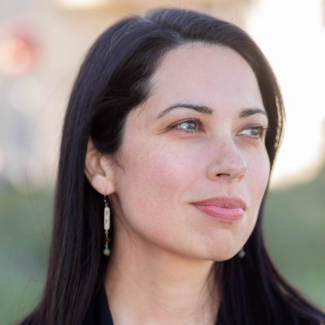
Summer Gray is an interdisciplinary social scientist focused on coastal adaptation and the inequities that arise in response to climate change. Her book, In the Shadow of the Seawall, examines the social and environmental implications of seawall construction on coastal communities, providing a critical analysis of adaptation strategies that often deepen existing disparities. As a cinematic sociologist, she uses documentary filmmaking to explore environmental values and systemic injustices, combining in-depth interviews with visual storytelling.
Research
As a qualitative environmental sociologist, I am interested in the social and historical factors that contribute to disparities in efforts to adapt to climate change. My work can be found at the nexus of climate justice studies, critical adaptation studies, and disaster studies. My approach employs methodologies that cross geographical boundaries to identify sites connected in common struggle.
Critical Climate Adaptation
Conventional adaptation practices overlook place-specific histories of dispossession, political oppression, longstanding confrontations with injustice, and everyday efforts to survive. To remedy this, I examine placemaking and placekeeping practices across space and time, from colonial encounters to development schemes and climate adaptation. In this body work, I focus on nations at the frontlines of the climate crisis.
Critical Disaster Studies
No one can escape the impacts of climate change, not even those who live in the wealthiest and most privileged parts of the world. I saw this firsthand in 2017 and 2018 when a tragic series of events culminated in deadly debris flows in Montecito, California. I spent many hours watching news and community meetings, taking notes, thinking about how evacuation zones are drawn, and learning about how recovery processes mirror existing social inequalities and uneven relationships of power. I have started to integrate post-disaster recovery into my body of work in order to highlight the importance of residual injustice, or circumstances in which harm is transferred from one place and time to another through unjust recovery and adaptation practices.
Climate Justice Movements
Throughout my career, I have dedicated my attention to climate justice and the question of what can be done to address global inequality and climate inaction. I have been fortunate to collaborate with activists and scholars to advance climate justice as a new interdisciplinary field of study. I have studied the motivations of youth activists at the U.N. Climate Treaty Negotiations. I have also written on the concept of “Marine Justice” with members of the Mellon-Sawyer Seminar on Sea Change at the University of California, Santa Barbara.
Education
- Ph.D., Sociology, University of California, Santa Barbara
- M.A., Sociology, University of California, Santa Barbara
- B.A., Science, Technology, and Society, Pomona College
Courses Taught
- ENV S 102: Qualitative Methods for Environmental Studies
- ENV S 155: The Built World: Infrastructure and Environmental Change
- ENV S 182: Seminar in Community and Personal Resilience
- ENV S 183: Film, Representation, and the Environment